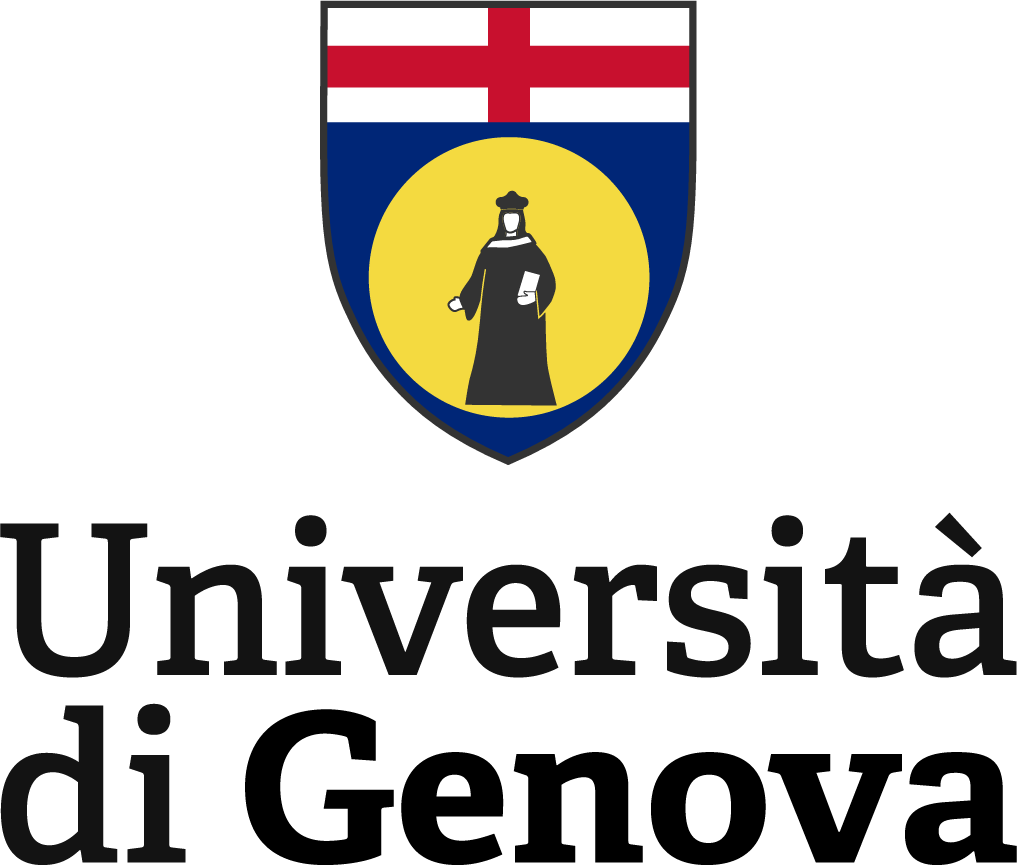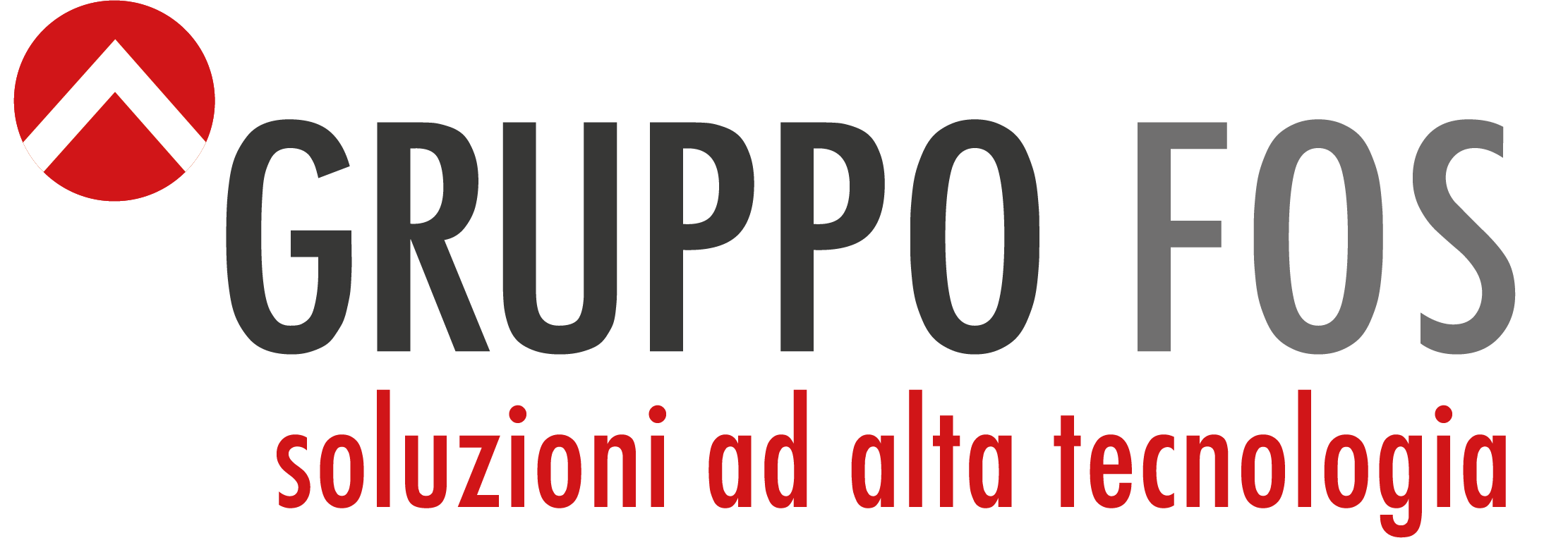CSW 2022

Computer Science Workshop 2022
3rd Edition
June 9th, 2022, 9-17
Room 506, DIBRIS, Valletta Puggia, Department of the University of GenovaVia Dodecaneso 35, Genova, 16146 IT
con il contributo dell’Università degli studi di Genova
Motivation and goals
We are glad to announce the 3rd edition of the Computer Science Workshop at the Department of Informatics, Bioengineering, Robotics and System Engineering (DIBRIS) at Università di Genova.
What about research in Computer Science?
Computer Science is constantly increasing in complexity with many and many new fields of research emerging. Here, at the University of Genoa, we are involved in some of these fields as Virtual and Augmented Reality, Multi-Agent systems, Data Science, Data Management, Computer Graphics, Security, Machine Learning, Programming Languages, Logic, Computer Vision, Software Engineering and many others. The main goal of the workshop is discussing the many aspects of the Computer Science research fields, to present a broad perspective of this subject and look for possible (unexpected) interconnections. We are glad to host four speakers:
- Letizia Tanca, Politecnico di Milano (IT)
- Jurriaan Rot, Radboud University (NL)
- Dimitri Ognibene, Università degli Studi di Milano Bicocca (IT)
- Matteo Lissandrini,Aalborg University (DK)
Flyer
Abstracts
Health Big Data: a step forward for data management in the Italian medical landscape - Letizia Tanca
Understanding the molecular mechanisms underlying diseases is radically changing the landscape of medicine (Precision, or Custom Medicine). This revolution was initiated by Genomics, which was later joined by other Omics approaches ( transcriptomics, metabolomics, radiomics, etc.) that have increased the granularity of the investigations in healthy and diseased cells. The systematic collection and sharing of omics and clinical data from individuals, and in perspective of real-world data, health and environmental data, will generate a universal resource of knowledge for health and care management. A priority of the Biomedical Research and Health Systems is therefore the acceleration of the transition to Data Medicine. The Health Big Data project aims at the creation of a technological platform that allows the generation, extraction, collection, sharing and analysis of scientific and clinical data of the patients of each of the 50 institutes (IRCCS) belonging to the project. The type of data that will be processed includes omic data, clinical data (electronic medical record, patient follow-up data, real world data), imaging and radiomics data, and further data provided by patients. The platform must also guarantee connectivity of the project institutes with other Research Institutes, database of the National Health Service and international public ones. After a general presentation of the project, I will concentrate on the main issues related to the integration platform.
Introduction to automata learning - Jurriaan Rot
Automata learning and testing techniques are successful in improving correctness of software and hardware systems. They have been applied to analyse network protocols, legacy software and embedded control software. In this talk, I will give a basic introduction to automata learning techniques and algorithms.
From learning to search to finding what others miss: developing a theory of mind for human-robot interaction with active perception - Dimitri Ognibene
In the last 10 years, with the advent of modern deep learning methodologies, substantial performance improvement has been observed in artificial perception systems. However, the common solution to deal with the sensory limits (e.g. occlusions and limited FOV) through the increase in the number and types of sensors resulted in an escalation of costs, weight, and power demands, while important information can still be missed (e.g. occlusions). Active perception mechanisms, that enable to dynamically deal with sensory limits, have received less attention. Yet, it has been recently shown that such mechanisms, which select part of the input also through spatial relations, may substantially improve learning performance and even enable online adaptation to new environments. Active perception plays a crucial role also when interacting with other agents, who may have a different field of view or occlude relevant information. We here present a line of study about learning to find relevant information in solo tasks and during social interactions. We propose that learning combined with self-observation while performing such tasks may be at the base of the development of the flexible theory of mind capabilities.
Knowledge Graph Exploration: How to find Your Way in the Data Wilderness - Matteo Lissandrini
Exploration is one of the primordial ways to accrue knowledge about the world and its nature. As we accumulate, mostly automatically, data at unprecedented volumes and speed, our datasets have become complex and hard to understand. In this context, exploratory search provides a handy tool for progressively gathering the necessary knowledge when dealing with datasets that are to us “terra incognita”. When dealing with complex data, we are in need of powerful data models that give us the necessary expressivity to properly handle the richness and intricacies of the information contained in the dataset at hand. Knowledge graphs (KGs) are quickly becoming the most adopted model in these cases. KGs represent facts in the form of nodes and relationships and are widely used to represent and share knowledge in many different domains. The widespread adoption of knowledge graphs led to the advent of new KG exploration approaches to better understand their contents and extract relevant insights. This talk will provide an overview of such methods focusing especially on the exploratory techniques, the advantages they offer, as well as on the abundant research opportunities that lie ahead.
Speakers
Letizia Tanca
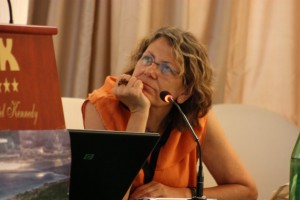 Currently, she coordinates her Department’s group in the Project Health Big Data (HBD), a ten-year endeavor funded by the MEF and coordinated by the Ministry of Health. In the past, Letizia served as Chairman of the Board of Studies in Computer Engineering (Milan) from 2000 to 2006, and from 2011 to the end of 2015 as Director of the Computer Science Area of DEIB. More recently, until the end of 2021 she has acted as Vice President of the National Group of Computer Engineers (GII) whose objective is to organize, coordinate and promote, at the Italian national level, the scientific and educational activities of professors and researchers in Computer Science and Engineering. Her research interests, in the recent years, have included databases for mobile devices, customizing and integrating data in context-driven, peer-to-peer distributed databases, design of quality- and context-aware databases and applications, the data curation pipeline before data analysis. Letizia Tanca is especially interested in the ethical issues inherently involved in the use of data analysis techniques. At the moment she is also responsible for the project RECKON (INAIL – ID 09/2018): “Real-world, context-aware knowledge-based Lab: Definition of an Operating Framework and its Participatory Validation in the Manufacturing Area”, on methods and techniques to integrate and restructure data related to the “operator-machine-environment” domain.
Currently, she coordinates her Department’s group in the Project Health Big Data (HBD), a ten-year endeavor funded by the MEF and coordinated by the Ministry of Health. In the past, Letizia served as Chairman of the Board of Studies in Computer Engineering (Milan) from 2000 to 2006, and from 2011 to the end of 2015 as Director of the Computer Science Area of DEIB. More recently, until the end of 2021 she has acted as Vice President of the National Group of Computer Engineers (GII) whose objective is to organize, coordinate and promote, at the Italian national level, the scientific and educational activities of professors and researchers in Computer Science and Engineering. Her research interests, in the recent years, have included databases for mobile devices, customizing and integrating data in context-driven, peer-to-peer distributed databases, design of quality- and context-aware databases and applications, the data curation pipeline before data analysis. Letizia Tanca is especially interested in the ethical issues inherently involved in the use of data analysis techniques. At the moment she is also responsible for the project RECKON (INAIL – ID 09/2018): “Real-world, context-aware knowledge-based Lab: Definition of an Operating Framework and its Participatory Validation in the Manufacturing Area”, on methods and techniques to integrate and restructure data related to the “operator-machine-environment” domain.
Jurriaan Rot
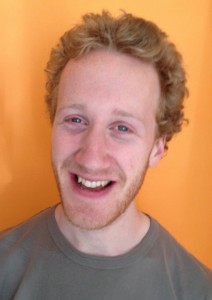 Jurriaan is an assistant professor at Radboud University. He is interested in theoretical computer science in general, and coalgebra, semantics, formal languages and verification in particular. Previously, he received his PhD degree at Leiden University, under supervision of Marcello Bonsangue, Jan Rutten and Frank de Boer.
Jurriaan is an assistant professor at Radboud University. He is interested in theoretical computer science in general, and coalgebra, semantics, formal languages and verification in particular. Previously, he received his PhD degree at Leiden University, under supervision of Marcello Bonsangue, Jan Rutten and Frank de Boer.
Dimitri Ognibene
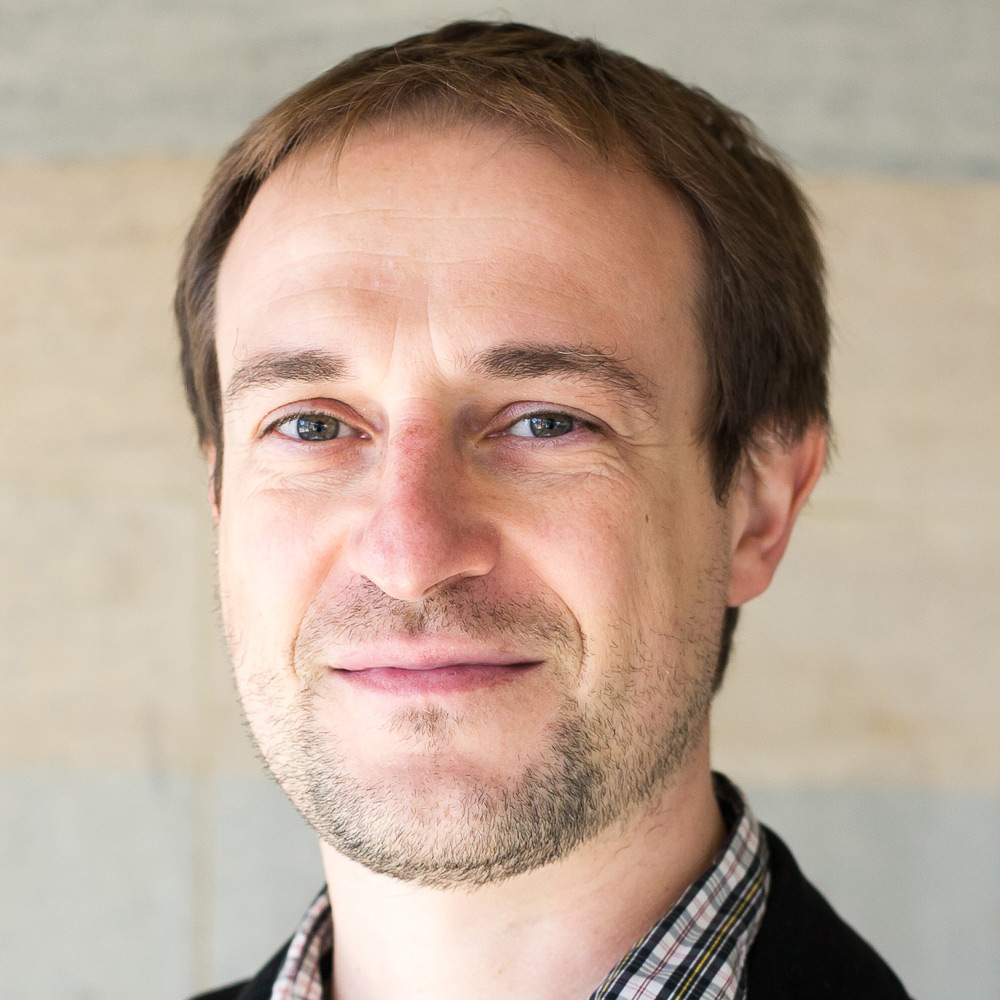 Dimitri joined Milano Bicocca University in 2020 as Associate Professor. Before, he had joined University of Essex as Lecturer in Computer Science and Artificial Intelligence in October 2017 moving from University Pompeu Fabra (Barcelona, Spain) where he was focusing on the development of algorithms for intelligent social agents with bounded sensory and computational resources supported by a Marie Curie Actions COFUND fellowship. Before he has been developing algorithms for active vision in industrial robotic tasks as a Research Associate (RA) at Centre for Robotics Research, Kings College London; devising Bayesian methods and robotic models for attention in social and dynamic environments as a RA at the Personal Robotics Laboratory in Imperial College London; studying interaction between active vision and autonomous learning in neuro-robotic models as a RA at Institute of Cognitive Science and Technologies of the Italian Research Council (ISTC CNR). He also collaborated with Wellcome Trust Centre for Neuroimaging (UCL) to study how to model exploration in the active inference modelling paradigm. He has also been Visiting Researcher at Bounded Resource Reasoning Laboratory in UMass and at University of Reykjavik (Iceland) exploring the symmetries between active sensor control and active computation or metareasoning. He obtained his PhD in Robotics in 2009 from University of Genoa with a thesis titled “Ecological Adaptive Perception from a Neuro-Robotic perspective: theory, architecture and experiments” and graduated in Information Engineering at the University of Palermo in 2004.
Dimitri joined Milano Bicocca University in 2020 as Associate Professor. Before, he had joined University of Essex as Lecturer in Computer Science and Artificial Intelligence in October 2017 moving from University Pompeu Fabra (Barcelona, Spain) where he was focusing on the development of algorithms for intelligent social agents with bounded sensory and computational resources supported by a Marie Curie Actions COFUND fellowship. Before he has been developing algorithms for active vision in industrial robotic tasks as a Research Associate (RA) at Centre for Robotics Research, Kings College London; devising Bayesian methods and robotic models for attention in social and dynamic environments as a RA at the Personal Robotics Laboratory in Imperial College London; studying interaction between active vision and autonomous learning in neuro-robotic models as a RA at Institute of Cognitive Science and Technologies of the Italian Research Council (ISTC CNR). He also collaborated with Wellcome Trust Centre for Neuroimaging (UCL) to study how to model exploration in the active inference modelling paradigm. He has also been Visiting Researcher at Bounded Resource Reasoning Laboratory in UMass and at University of Reykjavik (Iceland) exploring the symmetries between active sensor control and active computation or metareasoning. He obtained his PhD in Robotics in 2009 from University of Genoa with a thesis titled “Ecological Adaptive Perception from a Neuro-Robotic perspective: theory, architecture and experiments” and graduated in Information Engineering at the University of Palermo in 2004.
Matteo Lissandrini
 Matteo Lissandrini is an Assistant Professor in the Department of Computer Science at Aalborg University working on Data Exploration and Knowledge Graph Management systems. Matteo has been a Marie Skłodowska Curie IF fellow. He received his PhD from the University of Trento (Italy) with a thesis on exploratory search for information graphs. He was also a member of the DbTrento research group. He has been visiting researcher at the HP Labs in Palo Alto, California in 2013, and at the Cheriton School of Computer Science at the University of Waterloo, Canada, in 2014.
Matteo Lissandrini is an Assistant Professor in the Department of Computer Science at Aalborg University working on Data Exploration and Knowledge Graph Management systems. Matteo has been a Marie Skłodowska Curie IF fellow. He received his PhD from the University of Trento (Italy) with a thesis on exploratory search for information graphs. He was also a member of the DbTrento research group. He has been visiting researcher at the HP Labs in Palo Alto, California in 2013, and at the Cheriton School of Computer Science at the University of Waterloo, Canada, in 2014.
Online Poster Session
Since the Poster Session will be host physically, we will be offering a “quasi-online” Poster Session also to virtual participants.
- Issa Mouawad - Time-to-Label: Temporal Consistency for Self-Supervised Monocular 3D Object Detection
- Paolo D. Alfano - Efficient Unsupervised Learning for Plankton Images
- Marco Rando - Structured Stochastic Zeroth-order Descent
- Federico Figari Tomenotti - HHP-Net: A light Heteroscedastic neural network for Head Pose estimation with uncertainty
- Larbi Touijer - Automatic Estimation of Food Calories and Nutrients
- Muhammad Mohsin - Selective Disassembly of Electronic Components from WEEE using Artificial Intelligence
- Simone Cammarasana - Learning-Based Low-Rank Denoising: An application to biomedical images
- Pietro Barbieri - Enhanced Regular Corecursion for Data Streams
- Riccardo Bianchini - A Java-like calculus with user-defined coeffects
- Luca Ciccone - Ain’t No Stoppin’ Us Monitoring Now
- Claudio Mancinelli - Vector Graphics on Surfaces Using Straightedgeand Compass Constructions
- Nicola Corbellini - Computational Models of Group Potency from Social Interaction in Small Teams
- Marco Mochi - Planning and Scheduling in Digital Health with Answer Set Programming
- Francesco Baghino - PROPAGATOR, a Cellular Automata model for fast wildfire simulations: latest improvements and future developments
- Eros Viola - Mixed Reality Environment Enhanced by Self-Avatar
- Andrea Fasciglione - Psst…Hey! Do you have some time to talk about reproducibility of your work?
- Andrea Romdhana - IFRIT: Focused Testing through Deep Reinforcement Learning
- Marco Zuppelli - Are We Protected Against Network Covert Channels?
- Dario Olianas - STILE: a tool for parallel execution of E2E web test scripts
- Federico Dassereto - Table Augmentation in Data Lakes
- Chiara Accinelli - Non-Discriminating Data Transformation
- Daniele Traversaro - Collaborative Learning in an Introductory Database Course
- Débora C. Engelmann - Intentional dialogues in multi-agent systems based on ontologies and argumentation
